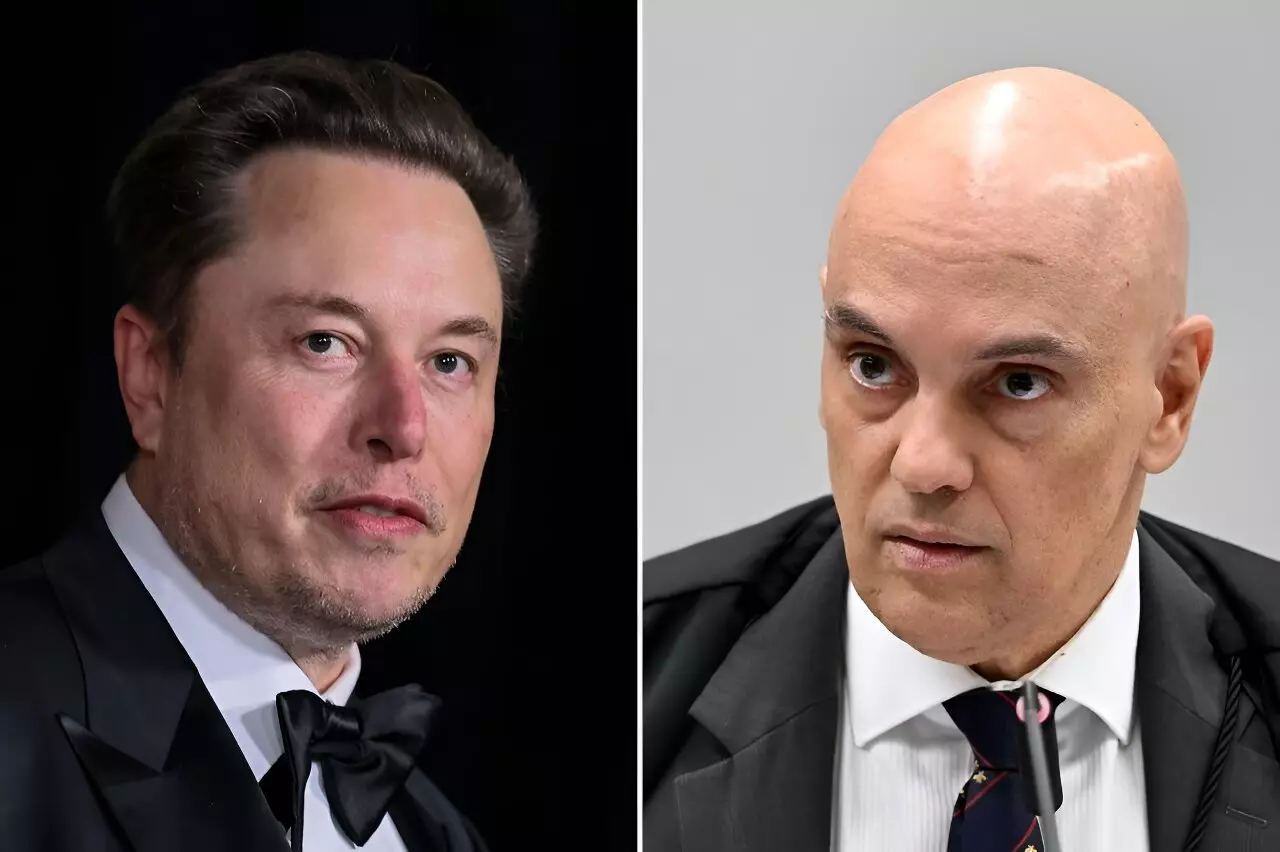In a notable escalation of tensions between social media regulation and corporate autonomy, the Brazilian Supreme Court’s recent decision concerning the social media platform X, formerly known as Twitter, highlights a complex intersection of digital accountability and freedom of expression. A ruling delivered by Justice Alexandre de Moraes stipulates that while X has designated a legal representative in Brazil—an essential move toward restoring its services—the platform remains barred from operation until further criteria are satisfied. This legal standoff is emblematic of broader global conversations surrounding misinformation and the responsibilities of digital platforms.
Justice Moraes’s ruling arose out of a contentious backdrop rooted in accusations against X for allowing the proliferation of misinformation, particularly from right-wing accounts accused of disseminating false narratives. The judge’s persistent confrontation with Elon Musk, X’s billionaire owner, has escalated tensions and raised pertinent questions about corporate governance in the sphere of social media. After Musk’s failure to comply with previous orders to remove specified accounts, the court deemed the suspension necessary to safeguard democracy in Brazil.
Moraes expressed concerns that X had “not duly met” the required legal parameters to lift its suspension. This underscores the court’s determination to hold X and its leaders accountable, setting the stage for a high-stakes battle that balances the intentions of social media with the rights of a society to accurate information.
The ongoing conflict has led to divergent reactions among Brazilian citizens and leaders. Supporters of the Ban, primarily within the political left and backing President Luiz Inacio Lula da Silva, laud the decision as a necessary measure against disinformation. Conversely, critics, including right-leaning factions and former President Jair Bolsonaro, have condemned it as a violation of constitutional freedoms. This polarization reflects a broader societal debate about the limits of governance over private entities, particularly in a democratic context.
As X’s services remain suspended, implications for user engagement and the platform’s influential role in Brazilian politics are significant. With over 22 million users in Brazil before the ban, the sustained absence of X could diminish public discourse and limit communication avenues that many users have come to rely upon.
Elon Musk’s public persona as a tech innovator contrasts sharply with his contentious interactions with the Brazilian judiciary. His rhetoric, referring to Justice Moraes as an “evil dictator” and likening him to the infamous character Voldemort, paints a picture of a billionaire embroiled in a personal vendetta as much as a business dispute. This clash not only highlights Musk’s combative approach but also raises questions about the accountability of tech leaders in global governance.
Moraes’s recent actions—freezing the assets of X, as well as Musk’s satellite operator Starlink, which holds potential benefits for remote communities—underscore the increasing scrutiny digital enterprises face under judicial mandates. The final outcome of this legal battle may set critical precedents for social media accountability and censorship, informing how platforms operate within national jurisdictions moving forward.
The feud between Brazilian authorities and X represents a microcosm of the global struggle to navigate misinformation, user rights, and corporate responsibility. With looming deadlines and unresolved complexities, the resolution of this issue will undoubtedly dictate not only the future of X in Brazil but also the broader implications for social media governance globally. The Brazilian government’s rigorous approach to managing misinformation through judicial means might serve as a blueprint for other nations grappling with similar dilemmas.

